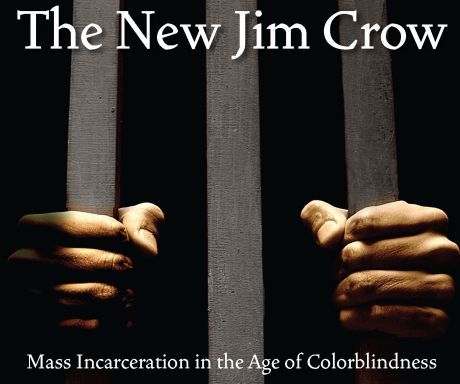Arts
You are here
Confronting the new Jim Crow

May 27, 2016
As the Black Lives Matter movements continues to gain international prominence and challenge police brutality and systemic racism, The New Jim Crow: Mass Incarceration in the Age of Colorblindness is a valuable resource. Michelle Alexander’s book has the potential to arm activists with the arguments about what racism looks like in a country where there can be an African-American president, but also thousands of completely disenfranchised and oppressed African-Americans.
The premise of the book rests on the point that in “color-blind” America there is a profound misunderstanding regarding how racial oppression actually works. In the wake of the civil rights movement and in a time and place where a majority of white people will say that racial discrimination is wrong and have voted for a black president, the New Jim Crow is something much more insidious.
The system of mass incarceration, what Michelle Alexander has identified as the New Jim Crow, is an elaborate system of control, complete with political disenfranchisement and legalized discrimination in every major area of economic and social life. It is produces racial meaning and racial boundaries. Following the incredible victories of the civil rights movements of the 1960s and 1970s, Conservative Americans had to find a new way to say the same old things. The idea of being “tough on crime” became a stand-in for long held racist ideas about black predators and the safety and supremacy of white families. In the mid to late 70s, the Republican party leaned hard in the direction of being tough on crime, rooting out the “social pathologies” of poverty, and targeting illegal drug use. As sociologist Katherine Beckett notes, “the alleged misbehaviours of the poor were transformed from adaptations to pverty that had the unfortunate effect of reproducing it into character failings that accounted for poverty in the first place.”
All of these social ills could be identified with the impoverished communities around the country, but in the public discourse and the social imaginary, the campaigns of Richard Nixon, Ronald Reagan and George Bush Sr. these social ills became almost totally identified with urban black communities. The War on Drugs became “a legitimate outlet to the expression of antiblack resentment and animus—a convenient release valve now that explicit forms of racial bias are strictly condemned. In the era of colorblindness, it is no longer permissible to hate blacks, but we can hate criminals.”
This racialization of crime in the media and political discourse means that the system of mass incarceration and control of black men, can operate without seeming overtly racist at all. Black police officers, and lawyers prosecute it, some prominent members of the black community cheer on “tough on crime” measures, but “the War on Drugs was declared as part of a political ploy to capitalize on white racial resentment against African Americans, and the Reagan administration used the emergence of crack and its related violence as an opportunity to build a racialized public consensus in support of an all-out war—a consensus that almost certainly would not have been formed if the primary users and dealers of crack had been white.”
The New Jim Crow is an incredibly concise, yet powerful indictment of the politics of colorblindness and Alexander poses questions and offers radical ideas that could build a movement to oppose the systemic racism of mass incarceration. Her solutions offer an alternative to the trickle-down strategies of racial justice that have become the norm for many civil rights organizations in the past few decades and takes an “all of us or none of us” approach to justice that includes unifying with poor and working class whites to demand a better system.
Read this book. Get copies for your friends, family and co-workers. Talk about it. It is an incredibly accessible and valuable resource that can move us from the paralyzing and shaming of identity politics so common with any discussions of race and oppression and move towards a conversation about the systematic oppression that disenfranchises and degrades and real ideas about how to fight to end it.
Section:
Topics:









